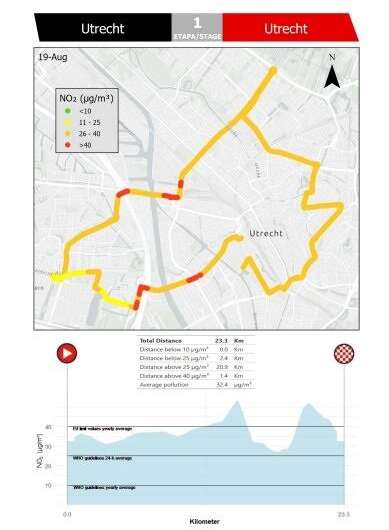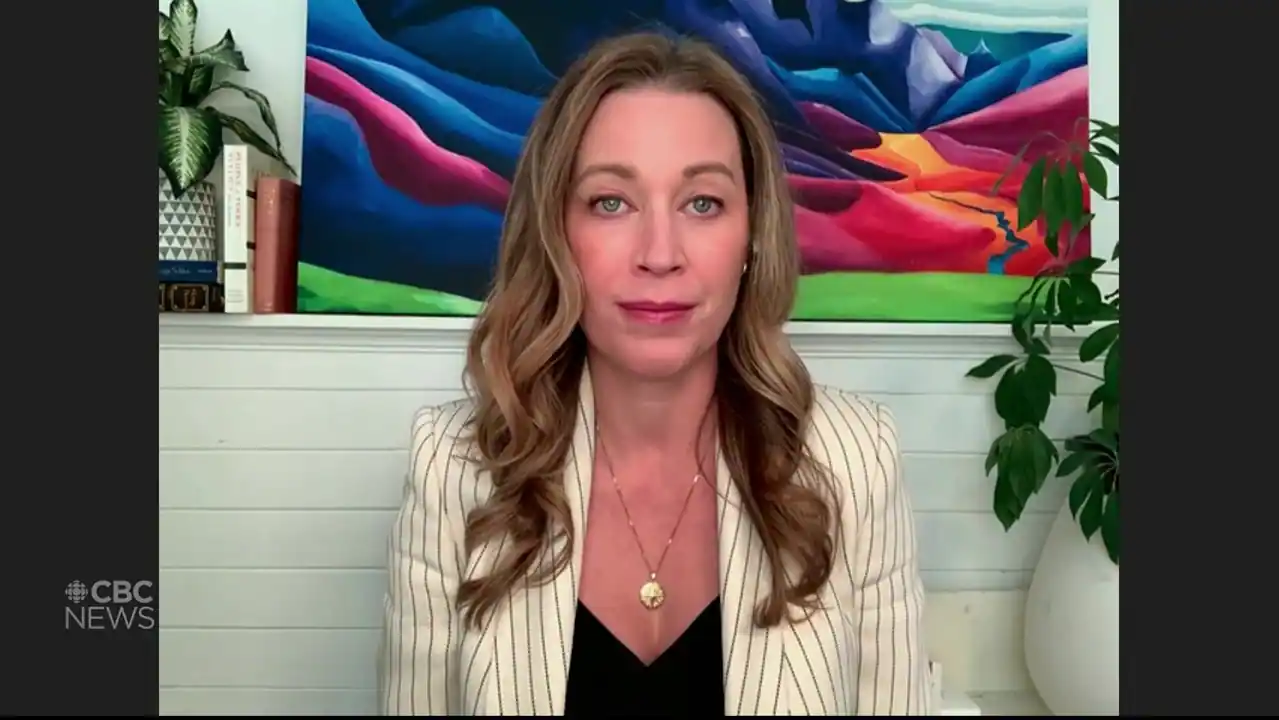
Well being care startups flip to ‘coaches’ to assist sufferers cope and monitor therapy
In 2011, Sean Duffy and Adrian James had been sitting in San Francisco’s Dolores Park debating what to name some staff on the firm they based, Omada Well being.
Omada, which launched that 12 months, supplies digital therapy for persistent circumstances. The corporate addresses the circumstances by a staff of staff — some conventional clinicians and others meant to offer encouragement to sufferers as they handle the day after day of hypertension, prediabetes, and different circumstances. This second group was essential, they thought. The founders ended up asking sufferers what title to make use of.
Was this particular person a “concierge”? Sufferers thought that seemed like somebody who helped with their payments. A “information”? To what vacation spot? The founders settled on “coach.” Sufferers preferred the time period: It recommended somebody who may give assist and make them “really feel much less alone,” Duffy stated, as they handled their well being challenges.
This determination was an early marker in an eventual tech firm pattern. Since then, dozens of comparable startups targeted on well being teaching have emerged, typically backed by large bucks. A assessment by KHN — of reports releases, the trade database Crunchbase, and websites like LinkedIn — discovered practically 50 corporations with virtually $7 billion in enterprise capital funding.
These startups supply individuals or software program to offer motivation, course, or ethical assist for managing what goes awry with the human physique, together with persistent circumstances, musculoskeletal illnesses, weight problems — even attention-deficit/hyperactivity dysfunction and eczema. Enterprise fashions fluctuate. Some startups take funds straight from customers; “anti-diet” app Wellory asks for $45 a month. Different startups get month-to-month per-member funding from corporations to supply common teaching for his or her staff. Some providers tout 24/7 entry and common connection instances of 60 seconds. With some, coaches escalate critical points to extra extremely credentialed clinicians.
The keenness behind teaching is, on its face, a curious flip for an trade that likes to boast of its billion-dollar drugs and spooky-sophisticated synthetic intelligence.
“As these digital well being startups bought going, they realized expertise just isn’t sufficient to drive change,” defined Michael Yang, the managing accomplice at buyers OMERS Ventures, who has invested in teaching startups. Sufferers would possibly must eat higher, observe the bodily remedy plan, speak by emotional turbulence, and extra.
Coaches — whether or not they’re individuals or software program — can assist sufferers between formal visits to the physician. That form of encouragement may be necessary for sticking to a care plan — a vital factor in a world the place good habits imply quite a bit for protecting wholesome. Whether or not a affected person wants a staff to help with the bodily points of recovering from orthopedic surgical procedure or assist avoiding triggers for behavioral well being circumstances, these teaching corporations are an app or a web site away.
“The mannequin has grow to be extraordinarily de rigueur,” Yang stated. At many startups, coaches are “doing the lion’s share of the labor.”
Nonetheless, many individuals within the well being care trade are ambivalent about this pattern. Some suppose it provides a human contact to part of the financial system that may be outlined by brusque medical doctors and incomprehensible payments. Others ponder whether it is merely a method to leverage low-cost labor.
Supporters say coaches get deeply concerned, even performing duties that may go undone in any other case. “We’d like different workforces to fill in a few of these gaps,” stated Omada’s Duffy. At Omada, coaches put on a number of hats: They assessment glucose knowledge whereas monitoring sufferers’ way of life adjustments and might present empathy in a method that different individuals within the well being care system aren’t offering. Coaches are “people who ask questions earlier than casting judgments,” Duffy stated.
Giving by-the-book care to individuals with diabetes — or others with persistent circumstances — requires many extra staff than the well being care system has, Duffy stated. So a coach — whose wage is often within the tens, slightly than tons of, of 1000’s of {dollars} — seems like an answer for a lot of startups.
“‘Teaching’ is a method to keep away from having to have medical licenses or FDA approvals,” Bob Kocher, an investor at Venrock, wrote in an e-mail. “It lets you begin serving sufferers method quicker.”
Coaches already play a job in established establishments.
Dr. Pushpa Raja, a psychiatrist within the Division of Veterans Affairs’ Better Los Angeles system, stated friends play a distinguished position on the VA. Usually, individuals with a given situation work together with veterans who’ve the identical illness. “They’ll relate to sufferers differently,” she stated. “They’ll cheerlead sufferers in the direction of objectives. They’ll coach sufferers in planning out and strategizing.”
They’re additionally built-in right into a staff with psychiatrists and first care physicians, which suggests they will move on observations — for instance, if somebody’s melancholy is getting worse over time.
Some observers of well being teaching startups are involved they do not have the identical capability. Coaches would possibly have the ability to “do a number of the trivia which might be annoying” to medical doctors, stated Liz Chiarello, a sociologist at Saint Louis College in Missouri who research medical organizations, however a surge in these staff may “fragment our well being system even additional.” A behavioral well being coach at a given startup would possibly must elevate a problem to a psychiatrist or main care doctor — and whether or not the startups’ coaches have tight hyperlinks with establishments that supply the next-level experience is commonly unclear.
What’s extra, coaches won’t be educated effectively — and is likely to be serving too many sufferers to do a lot good.
“I cringe once I get startups who’re like, ‘We’re going to rent 100 individuals and prepare them for 2 weeks,'” stated Yang. “You’re not going to be taught something in two weeks.” For some corporations’ coaching, “it’s fairly scary, the shortage of rigor and depth,” he stated.
Teaching {qualifications} might not be all they seem, both.
Wellory guarantees to match customers to a diet coach after they take a quiz. These coaches, in flip, counsel wholesome meals for customers. However some quiz-takers — like Dr. Seth Trueger, a Northwestern Medication emergency room physician; and a KHN reporter — had been matched with a coach who described herself as “RDE,” quick for “registered dietitian eligible.” It is a time period for nutritionists who’ve accomplished most, however not all, of the necessities essential to qualify as a registered dietitian.
However RDE just isn’t knowledgeable designation, in response to the Fee on Dietetic Registration, and anybody utilizing it ought to cease “instantly.” The fee is the credentialing company of the Academy of Vitamin and Dietetics, the commerce group for meals and diet professionals. Wellory eliminated the reference after KHN contacted the corporate in regards to the problem.
Yang stated some startups consider coaches as virtually a “name heart mannequin,” with plans to rent dozens of coaches who assist tens of 1000’s of sufferers.
Some startups are certainly utilizing small groups. Take Homethrive, a brand new firm recent off elevating $20 million to assist caregivers for older adults or different sufferers. The corporate goals to make use of a mixture of tech instruments and social staff to offer caregivers with every thing from emotional assist and connections to suggestions for wheelchairs and walkers.
David Grabowski, a professor at Harvard Medical Faculty who makes a speciality of getting old and long-term care, stated there’s an enormous opening for these corporations to fill. Caregivers could also be not sure about methods to full sure day by day duties, like bathing or selecting up sufferers. However, simply as a lot, “it’s the loneliness, it’s the sensation you’re on this by your self,” he stated.
Nonetheless, Homethrive is counting on a small workforce. The corporate serves about 20,000 members, co-founder Dave Jacobs stated. It at present employs 40 social staff who ship “episodic” assist through the “most intense” conditions, like deciding whether or not to maneuver sufferers into properties, Jacobs stated. For on a regular basis conditions, it depends on expertise to attach sufferers to sources.
Grabowski has questions on such fashions. “I undoubtedly marvel if 40 social staff is adequate” to deal with such conditions, he stated.
Teaching startups are an especially heterogeneous subject. Yang stated that he has seen startups that do teaching effectively however that he is not sure how a lot profit the general public is deriving. “Are we doing the inhabitants service on the finish of the day?”
|
|





